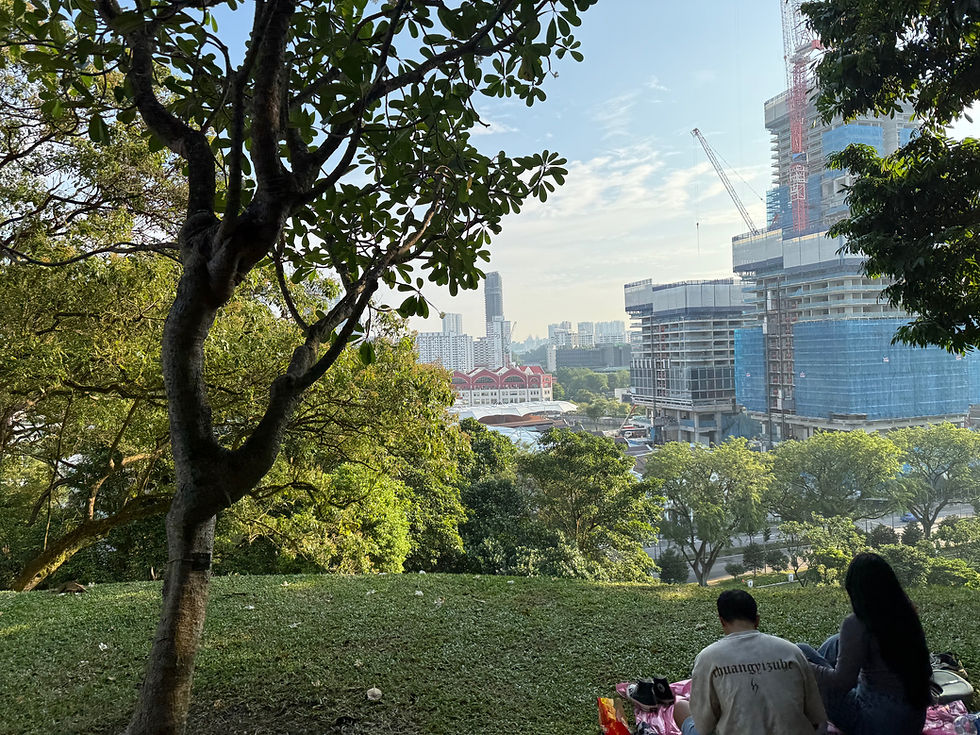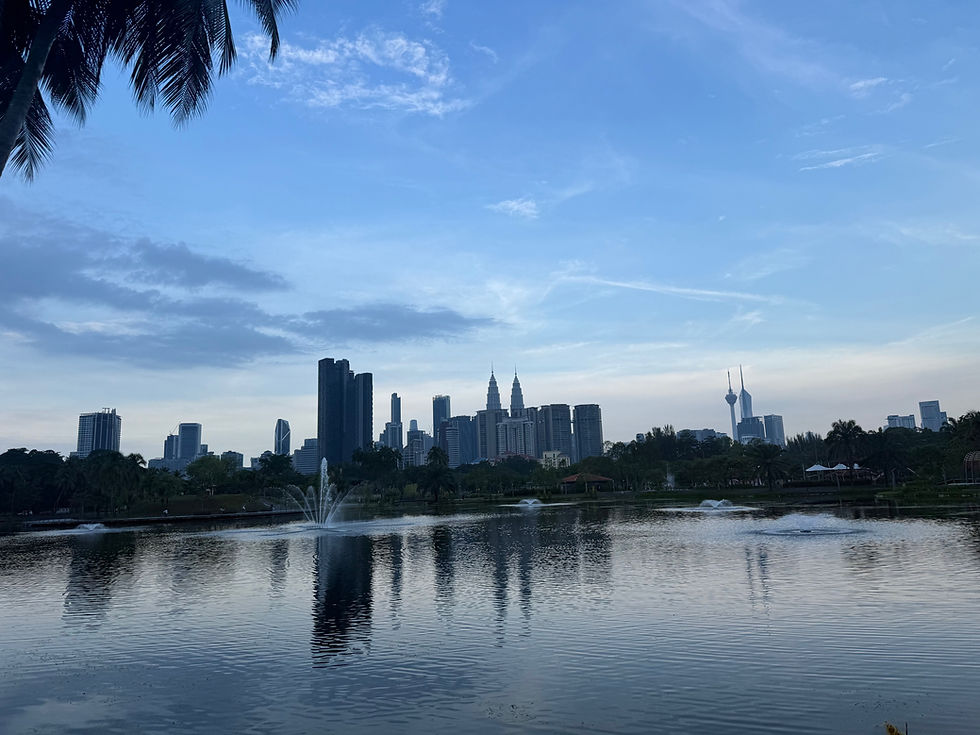A Month Burning Alive: Guatemala Puts the 'Quality' in Inequality
- Nikola Ranick
- Nov 27, 2024
- 5 min read

There is always a stomach-dropping mix of glitz and glamour among the upper echelon of any developing country. In Guatemala City, more than anywhere else, this drop was excruciating. The city was by far the most modern in the region—at least in the parts designed for the elite. Of course, Guatemala is the largest country in the region, boasting explosive population growth post-World War II. It is also arguably one of the most diverse, with 40% of the population maintaining full indigenous ancestry. But that diversity makes the country’s stark inequalities all the more glaring - much more than wealthier Panama.
My entry to the country was not traditional, or perhaps it was: My fear of highway trekking—brought on by a lack of reliable transport—was fully realized. Surprise! There was a transportation strike no one mentioned until after I arrived. Because of this, after taking a long ride on a local bus, I had two unappealing options: 1) wait in the sweltering heat in a water-less, un-air-conditioned buses packed to the brim with bodies and driven by rotating array of men in their early 20's who boasted religious memorabilia alongside porn site decal stickers, or 2) walk in between two frozen lanes of traffic across a largely abandoned picket line and on from who knows where. Considering I cannot stand to be still, we know my route was the latter.

I always know I am really struggling when strangers start to stop and ask me if I am ok, and here was no exception. But eventually, the standstill traffic accelerated and I made it back on a bus attempting to charge me 10x as much as the standard fare. Good thing my friendly American Mormons were there to argue it down to a reasonable price. Sometimes it's best to leave the hard work to those fluent in another language...
The sordid chaos inherent to my arrival quickly faded as I reached the wealthy pockets of the capital. The grandeur of the malls there could make even Beverly Hills envious, and the price points reflected this opulence. The affluent parts of the city exude a sense of calm and safety—even at night—if you’re lucky enough to be within their borders. They also boast modernity in cultural and social issues; there were numerous trans-identifying individuals freely strolling the malls in a region notorious for stringent gender norms. Honestly, I could cover my ears and confuse my location for a designer shopping malls back in Johnson 'Old Money' County, Kansas.
Initially, I felt more nervous in Guatemala City than anywhere else, particularly because certain city zones were explicitly marked as no-go areas by the U.S. Embassy. But these zones were hard to stumble into, consisting largely of business-less slums. Yet I had more than one connection warn me about walking anywhere in the city at all, always a key indicator of both rampant inequality and country in-cohesion. The refrain of 'this is a country where people are murdered over cell phones' was certainly not meritless, but reflected a fear of 'the other' that was both prolifically shared and, unfortunately, not too unlike the realities in many inner cities of America.

A toxic polarity was evident among the people as well. They seemed to lack the region’s characteristic warmth and instead carried an air of indignation. This "every man for himself" mentality is a constant in the region but never hits you so blatantly until you strut those city streets. In one affluent neighborhood, I saw a three-foot-high barbed wire fence set atop faux grass—a visual encapsulation of the Guatemalan elite's disdain towards their own people. To be clear, these are high-crime countries, and I don’t mean to demonize affluence. But the general lack of regard for fellow citizens was a painful reminder of what NOT to do in building a social contract.
With the election of Guatemala's first left-wing president in nearly a century, many international observers worried about the potential for an internal coup, something I found curious at the time. After all, this region may be highly undemocratic but is ultimately still accountable to a subsection of people that have at least maintained mild Democratic tendencies since the 90's. After visiting Guatemala City and observing the overwhelming grandeur of the country's elite, I understood the substance of these fears. The old party duopoly, in stark contrast to El Salvador’s system, maintained a firm grip on politics, supported by the wealthy economic elite. While other countries (see Honduras) must rely on other institutions for at least a modicum of democracy, the sheer power of Guatemala's Upper Class made it nearly a governing authority itself. If any group could overthrow their own government, it would be them.

After the city came Guatemala's classic tourist haven. Antigua was picturesque, albeit because it has long been a tourist haven. Its prices, atmosphere, and general vibe were comparable to an inland Cancún. It was undeniably beautiful - but also enamored by international clientele, culture, cuisine, and the money that comes with all of the above. For the families there for generations, surely developed level standards were easy to muster. But once more, the haves and have-nots that bled out from this tourist-heavy economy. From Antigua, I took a bus to a Mayan town in the mountains, which I found captivating despite its simplicity. It wasn’t bustling, but it was serene—and really poor. But, at least in this region, the poverty did not initiate violence. It was clear, as with much of the region, this gang presence could only be found in the cities, areas where density enables both corruption and violence.
On my last night in Central America, my already-late flight was delayed several hours, so I wandered through the upscale parts of the city (I figured I might as well make the best of this segregation). True to form, despite being the only person roaming these wealthy streets, no one bothered me. Was it because of my nationality? Partially, I’m sure. My appearance may make me a target, but it also serves as a warning of potential consequences (For some reason, I’ve always unnerved strangers, even in my most unassuming state).
Throughout the trip, I felt an unsettling sense of destiny for the United States, as if we were on the brink of mirroring the inequalities of this region. Arriving back home, I was reminded that we’re still far from this degree of division. Yet, we could get there. Witnessing these much older societies—once among the most diverse in the world, and now, among the least—sent a shiver down my spine as America itself continues to diversify. I hope our exceptionalism doesn’t divulge into American chaos - that is anymore than it already has. Otherwise, the three-feet-barbed-wire-fence industry will be booming.





Comments